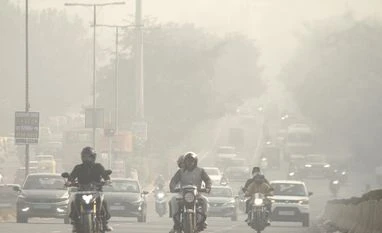The Commission for Air Quality Management (CAQM) on Monday reimposed Grap-III measures after a sharp rise in pollution levels across Delhi-NCR.
The decision came as the Air Quality Index (AQI) reached the “very poor” category on Monday. Strict actions have been enforced to curb air pollution, including a total ban on non-essential construction and demolition activities.
Under Grap-III directives, diesel-powered goods vehicles are barred from entering Delhi, and all demolition and excavation operations have been suspended. Schools in Delhi, Gurugram, Faridabad, Ghaziabad, and Gautam Budh Nagar are transitioning to a “hybrid” mode of education, with classes up to Grade V now conducted partially online. GRAP 3 back in Delhi-NCR: Students up to Class V to opt for hybrid mode
Delhi AQI levels
According to the Central Pollution Control Board (CPCB), the overall AQI on Monday morning was 355 at 10 am, classified as “very poor.”
On Sunday evening, the AQI had already entered the “very poor” category, climbing to 307 from 294 earlier in the day, which was at the upper limit of the “poor” range. The spike in pollution levels has been attributed to low wind speeds and adverse weather conditions.
The CPCB classifies AQI levels into six categories:
More From This Section
• “Good” (0-50)
• “Satisfactory” (51-100)
• “Moderate” (101-200)
• “Poor” (201-300)
• “Very poor” (301-400)
• “Severe” (above 400)
SC demands pan-India action plan
Highlighting pollution as a “pan-India” issue, the Supreme Court on Monday directed the Centre to provide a list of cities facing severe air pollution.
A Bench comprising Justices Abhay S Oka and Manmohan stated, “Give a list of other major cities with the problem of air pollution and whether, for those cities, some machinery can be created. We will expand this issue pan India. We should not give a wrong signal that sitting in the Supreme Court we are only dealing with air pollution in Delhi.”
The top court’s directive followed a report from one of its commissioners, who noted that the restrictions under Grap in Delhi were ineffective due to the lack of adherence to anti-pollution measures in cities beyond the National Capital Region (NCR).
(With agency inputs)
)